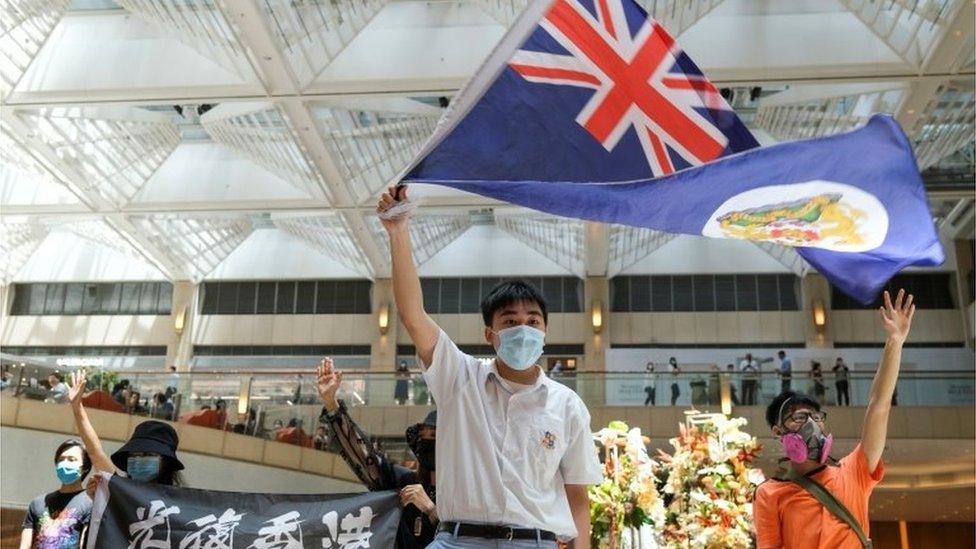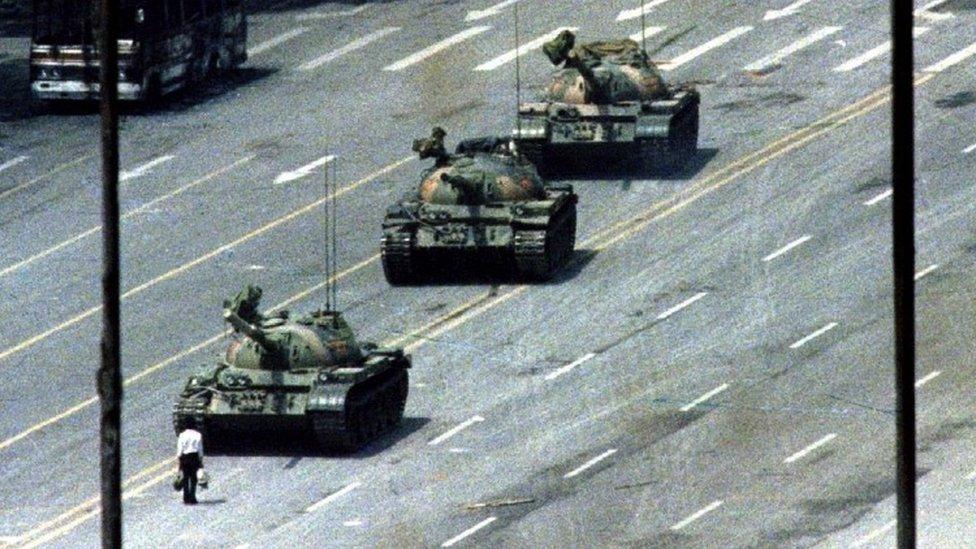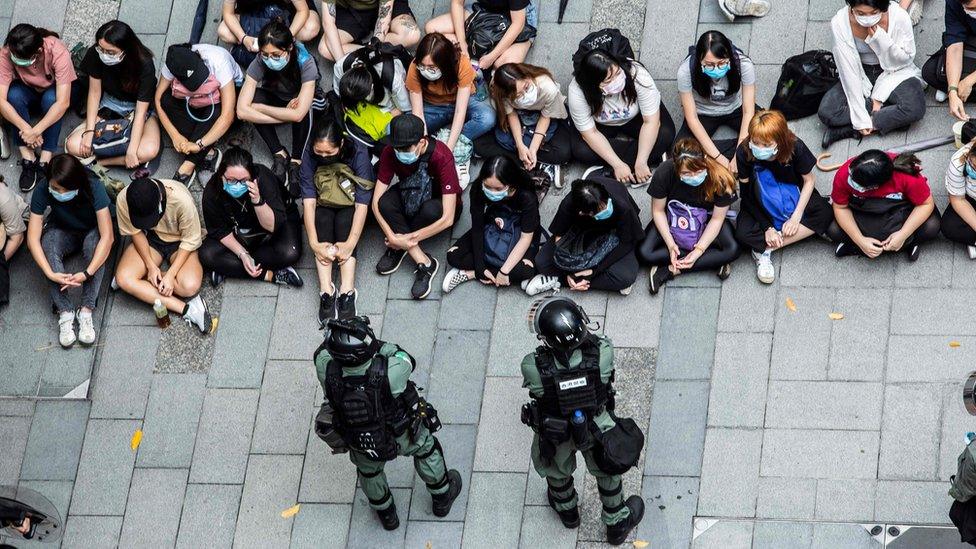UK seeks allies to help with potential Hong Kong 'exodus'
- Published

A pro-democracy demonstrator waves the British colonial Hong Kong flag during a protest
The UK is in talks with allies about how to handle a potential "exodus" of people from Hong Kong, the foreign secretary has said.
Dominic Raab told MPs "burden sharing" had been raised with countries in the Five Eyes alliance if China imposes a new security law on the territory.
The Five Eyes group includes the US, New Zealand, Australia, and Canada.
Mr Raab pledged certain Hong Kong residents a "path to citizenship" in the UK if the new law is imposed.
Under the plan, more than 300,000 holders of British National (Overseas) passports would be able to spend 12 months in the UK without a visa.
A further 2.6m eligible for BNO status - which normally confers the right to visit the UK for six months visa-free - could get the additional rights if they apply.
China is facing mounting criticism over a planned security law for Hong Kong which would make it a crime to undermine Beijing's authority.
In a statement to MPs, Mr Raab urged China to reconsider its plans which, he said, would threaten Hong Kong's autonomy and prosperity.
"The sad reality is that if China continues down this track, it will strangle what has long been the jewel in the economic crown," he said.
"It is clear to me that China is putting politics, as it views it, ahead of economics."
Earlier this week, seven former UK foreign secretaries urged Prime Minister Boris Johnson to form a global alliance to co-ordinate a response to the China-Hong Kong crisis.
Hong Kong was handed back to China from British control in 1997.
As part of an agreement signed at the time, the former British colony enjoys some freedoms not seen in mainland China - and these are set out in a mini-constitution called the Basic Law.
BNO passports were granted to Hong Kong citizens born before the Chinese handover in 1997 and while they allow the holder some protection from the UK foreign service they do not give the right to live or work in Britain.
The Five Eyes group is an intelligence sharing alliance formed during the Cold War.
- Published1 June 2020

- Published1 June 2020
